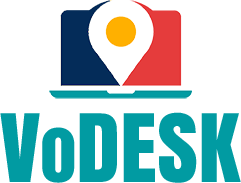Explore these online platforms that offer opportunities for you to sell your novels or storybooks and earn money. These platforms connect authors with potential readers and provide a platform to showcase and monetize your literary works.
Table of Contents
- Amazon Kindle Direct Publishing
- Lulu
- Smashwords
- Kobo Writing Life
- Barnes & Noble Press
- Apple Books
- Draft2Digital
- BookBaby
- Payhip
- Gumroad
-
Amazon Kindle Direct Publishing
Amazon Kindle Direct Publishing (KDP) is a popular platform that allows authors to self-publish and sell their ebooks on the Amazon Kindle Store. It offers a wide reach to a massive audience of Kindle users.
- Pros: Large customer base, established platform, high visibility.
- Cons: High competition, limited pricing control.
-
Lulu
Lulu is an online publishing platform that allows authors to self-publish and sell their novels or storybooks in various formats, including ebooks and print-on-demand. It provides tools for formatting, distribution, and marketing.
- Pros: Formatting tools, global distribution, wide range of book formats.
- Cons: Limited marketing support, less visibility compared to major retailers.
-
Smashwords
Smashwords is a self-publishing platform that allows authors to distribute and sell their ebooks to various retailers, including major online stores. It offers tools for formatting, publishing, and marketing.
- Pros: Wide distribution network, formatting tools, author-friendly royalties.
- Cons: Limited control over pricing, formatting challenges.
-
Kobo Writing Life
Kobo Writing Life is a self-publishing platform that allows authors to sell their ebooks on the Kobo ebookstore. It provides tools for formatting, pricing, and promotional campaigns to reach Kobo’s global audience.
- Pros: Global distribution, author-friendly royalties, promotional tools.
- Cons: Limited customer base compared to major retailers.
-
Barnes & Noble Press
Barnes & Noble Press (formerly Nook Press) is an online self-publishing platform that allows authors to sell their ebooks on the Barnes & Noble Nook Store. It provides tools for formatting, publishing, and marketing.
- Pros: Access to Barnes & Noble’s customer base, formatting tools, promotional opportunities.
- Cons: Limited market share compared to other major retailers.
-
Apple Books
Apple Books is Apple’s ebook platform that allows authors to publish and sell their ebooks to Apple’s user base. It offers tools for ebook creation, publishing, and promotion.
- Pros: Access to Apple’s user base, user-friendly ebook creation tools.
- Cons: Limited market share compared to other major retailers, strict content guidelines.
-
Draft2Digital
Draft2Digital is a platform that allows authors to self-publish and distribute their ebooks to multiple online retailers, including major ebook stores. It provides formatting tools, distribution options, and marketing features.
- Pros: Wide distribution network, formatting tools, royalty management.
- Cons: Limited control over pricing, formatting challenges.
-
BookBaby
BookBaby is a self-publishing platform that offers comprehensive publishing services for authors, including ebook distribution, print-on-demand, and marketing tools. It provides options for global distribution and promotional services.
- Pros: Comprehensive publishing services, global distribution, promotional opportunities.
- Cons: Service fees, limited control over pricing.
-
Payhip
Payhip is an online platform that allows authors to sell their ebooks directly to readers. It offers customizable sales pages, secure payment processing, and analytics to track sales and audience engagement.
- Pros: Direct sales to readers, customizable sales pages, flexible pricing options.
- Cons: Limited built-in audience, self-promotion required.
-
Gumroad
Gumroad is an online platform that allows authors to sell their digital products, including ebooks and digital storybooks. It offers customizable sales pages, secure transactions, and marketing features.
- Pros: Customizable sales pages, secure transactions, flexible pricing options.
- Cons: Limited discoverability compared to dedicated book platforms, self-promotion required.
